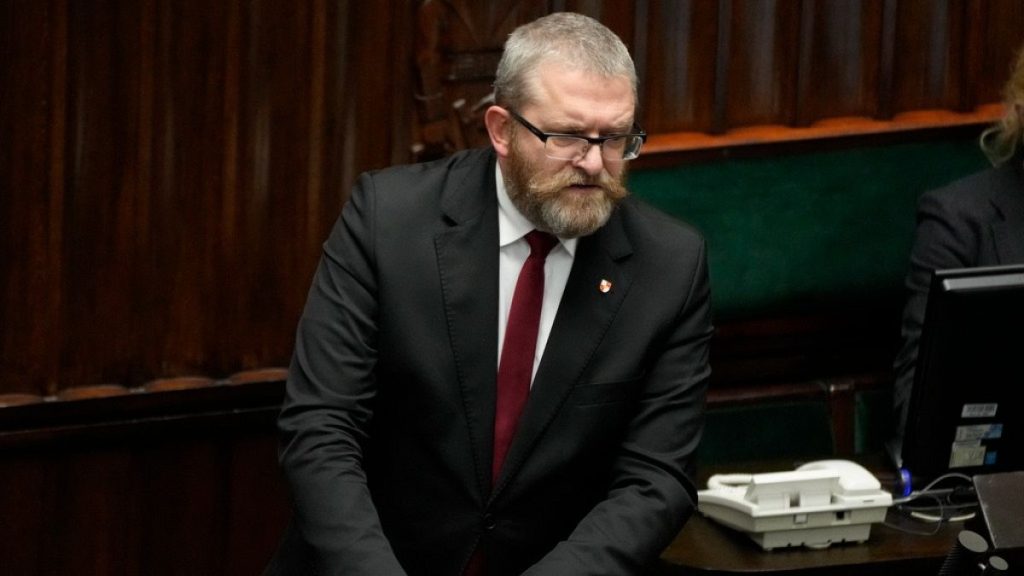Listen to the article
European Parliament Video Sparks Debate Over Speaking Rules and Procedures
A controversial video making rounds across social media platforms has ignited a public discussion about the procedural rules governing debates in the European Parliament, particularly regarding the time allocations for MEPs when they interject during sessions.
The footage, which began circulating widely last week, shows a heated exchange between parliamentarians during what appears to be a routine plenary session. Viewers have raised questions about the seemingly arbitrary enforcement of speaking time limits, with some MEPs appearing to receive more leeway than others when making impromptu interventions.
The European Parliament operates under a complex set of procedural regulations that dictate how debates are structured, including specific time allocations for scheduled speeches, rebuttals, and spontaneous comments. Under standard rules, MEPs are typically granted between one and six minutes for scheduled interventions, depending on the importance of the topic and the size of their political group.
For unplanned interjections or points of order, the rules theoretically limit members to one minute, though the enforcement of this restriction has historically varied widely depending on who holds the speaker’s chair. This inconsistency appears to be at the heart of the controversy shown in the viral clip.
“The rules exist for a reason – to ensure fair and efficient debate,” said Dr. Maria Schultz, a political scientist specializing in EU institutional processes at the University of Heidelberg. “But the application of those rules has always been somewhat flexible, which can create the impression of favoritism or bias.”
The Parliament’s Rules of Procedure, specifically Rule 194 regarding speaking time, grants the President considerable discretion in managing debates, including the authority to call members to order if they exceed their allotted time. Critics argue this discretionary power is sometimes applied unevenly across different political groups.
The controversial footage emerged during a particularly contentious period for the European Parliament, with lawmakers grappling with several divisive issues including migration policy, climate change regulations, and responses to ongoing international conflicts. These high-stakes debates have frequently led to emotional exchanges and procedural disputes.
Parliamentary officials have defended their approach, noting that rigid enforcement of speaking rules must be balanced against the need for substantive debate on complex issues. “The chair always attempts to strike a balance between allowing members to express their views fully and maintaining the overall schedule of parliamentary business,” a spokesperson for Parliament President Roberta Metsola told reporters yesterday.
Some MEPs have seized on the viral video to call for reforms. Sophia Veltroni, an Italian independent parliamentarian, has suggested implementing a more transparent and consistent timing system that would be applied equally to all members regardless of political affiliation.
“What we need is clear accountability in how these rules are implemented,” Veltroni said in a statement. “If the rules say one minute for an interjection, then it should be one minute for everyone, not three minutes for some and thirty seconds for others.”
The controversy has broader implications for public perception of EU institutions, which have long struggled with accusations of democratic deficits and opacity. Public trust in these institutions has shown slight improvement in recent years according to Eurobarometer surveys, but remains fragile.
Digital media experts note that short clips like the one circulating can often lack crucial context. “A thirty-second video rarely captures the full procedural context of parliamentary debates,” explained Jens Holmberg, a researcher on digital democracy at Copenhagen Business School. “These clips can distort public understanding of how deliberative bodies actually function.”
The European Parliament’s Bureau, responsible for setting procedural guidelines, is expected to address the issue during its next scheduled meeting on November 3rd. Several members have indicated they will push for a review of speaking time enforcement to ensure greater consistency and transparency.
As debates in the 705-member legislative body grow increasingly passionate in the face of multiple European crises, the question of who gets to speak, for how long, and under what circumstances remains central to perceptions of democratic fairness within the EU’s only directly-elected institution.
Fact Checker
Verify the accuracy of this article using The Disinformation Commission analysis and real-time sources.




8 Comments
Procedural disputes in legislative bodies are not uncommon, but it’s concerning if there are perceptions of unfair enforcement. More clarity on the specific rules and their application in this case could help assess whether any issues arose.
Agreed, transparency around the rules and their consistent application is key for maintaining trust in the democratic process. Hopefully further details will emerge to provide a fuller picture of what transpired.
This incident highlights the delicate balance between facilitating efficient debates and upholding principles of fairness and free speech in legislative chambers. Careful examination of the specific procedures involved could shed light on whether any improvements are warranted.
The video seems to have sparked a wider discussion about the European Parliament’s rules and procedures. While procedural debates can get heated, it’s important to ensure all voices are heard within the bounds of the established framework.
Interesting to see the debate around speaking procedures in the European Parliament. Seems like a complex set of rules that can sometimes lead to tensions. It would be helpful to get more context on the specific situation described.
Agreed, the nuances around speaking time allocations and enforcement appear to be a key part of this discussion. Understanding the parliamentary rules in more detail would shed light on whether there were any violations or just typical procedural wrangling.
This highlights the challenges of balancing transparency and efficiency in a large, multilingual legislative body like the European Parliament. Reasonable people can disagree on where to draw the lines around spontaneous interventions.
Indeed, managing debate time and ensuring fair participation is an ongoing challenge for any parliament. Curious to hear more analysis on whether the rules were applied appropriately in this specific case.